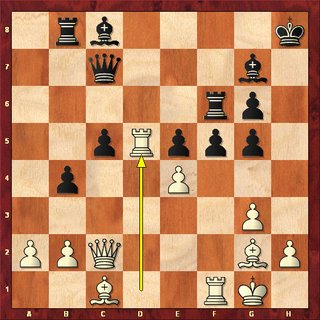Dire Straits at the Chess Board
A few months ago the following intriguing piece appeared in Scotland On Sunday's chess column:- Private Investigations into the Scottish chess archives have unearthed a particular gem this week. Chess historian Alan McGowan, formerly of Cathcart club but now based in Canada, was intrigued by the unusual name of a participant in the Scottish Championships in the 1950s. A player called E. Knopfler from Glasgow was runner-up to Dr. Aitken in the 1953 championship held in Edinburgh. He also played in the 1952 and 1954 championships and was sufficiently strong to play board 2 for the now defunct Glasgow Chess Club behind 11 time Scottish champion W.A. Fairhurst. The surname would only become better known later to aficionados of the 1980s stadium rock group Dire Straits based around the brothers Mark and David Knopfler. Could there be any connection? Typing Knopfler into Google returns just under 3 million pages. However a website of famous Hungarians Thehungarypage.com was promising since it mentioned the name of the brother's father as Erwin Knopfler, a Hungarian Jewish architect who had fled the Nazis in 1939 and settled in Glasgow. Mark in 1949 and David in 1952 were both born in Glasgow. The family moved to Newcastle in 1957. All that was needed was confirmation that “E” was indeed Erwin Knopfler. The website Knopfler.com is run by David Knopfler. On Tuesday I emailed David to ask if that was his father in the crosstables of the Scottish Championships in the early 1950s. Within three minutes a reply, “Yes, that was my Dad…(he) continued to almost invariably beat me mercilessly with little effort on his part well into his seventies.” Erwin died in 1993 aged 84. Knopfler's opponent in the game from the 1953 championships is also of some interest. Ian Candlish Kirkwood became a judge in 1987. In 2002 as Lord Kirkwood he was one of the five judges to hear the 2002 Lockerbie Appeal in the special Scottish court in the Netherlands . Scottish Championship Edinburgh, 1953, White: E. Knopfler, Black: I.C. Kirkwood, 1 e4 c5 2 Nc3 Nc6 3 g3 g6 4 Bg2 Bg7 5 Nge2 e6 6 d3 Nge7 7 0–0 0–0 8 Nf4 d6 9 Nce2 b5 10 c3 Rb8 11 Qc2 Bb7 12 Be3 e5 13 Nh3 Qd7 14 Ng5 Kh8 15 Rad1 f6 16 Nf3 Qc7 17 Qd2 Rfd8 18 Ne1 a5 19 f4 f5 20 Qc2 Bc8 21 Nf3 b4 22 Ng5 Rf8 23 fxe5 Nxe5 24 Nf4 Rf6 25 cxb4 axb4 26 Bc1 h6 27 d4 hxg5 28 Nd5 Nxd5 29 dxe5 dxe5 [ 29...b3! ] 30 Rxd5 Rc6 31 exf5 Bxf5 32 Qd1 Re6 33 Bxg5 Qa7 34 Be3 Qxa2 35 Rd8+ Rxd8 36 Qxd8+ Kh7 37 Bd5 Qxb2 38 Qh4+ Kg8 39 Rxf5 Qa1+ 40 Rf1 Qa6 41 Qe7 1–0.
 The position after 30 Rxd5
I can add a personal postscript to that column. A few years ago (about 1998 or so) I went to Caledonian University in Glasgow to watch the Scottish Chess Championships (marginally more exciting than watching paint dry I hear some of you saying). I was standing watching the game involving Scotland's top player, Paul Motwani. Another spectator was a man whom I recognised as Lord Kirkwood, who had obviously nipped up to watch the play during an adjournment at the High Court. I chatted to him briefly. It was obvious that he was a chess enthusiast, but until I saw the foregoing article I did not realise that he'd played in the championships before I was born.
The position after 30 Rxd5
I can add a personal postscript to that column. A few years ago (about 1998 or so) I went to Caledonian University in Glasgow to watch the Scottish Chess Championships (marginally more exciting than watching paint dry I hear some of you saying). I was standing watching the game involving Scotland's top player, Paul Motwani. Another spectator was a man whom I recognised as Lord Kirkwood, who had obviously nipped up to watch the play during an adjournment at the High Court. I chatted to him briefly. It was obvious that he was a chess enthusiast, but until I saw the foregoing article I did not realise that he'd played in the championships before I was born.


0 Comments:
Post a Comment
<< Home